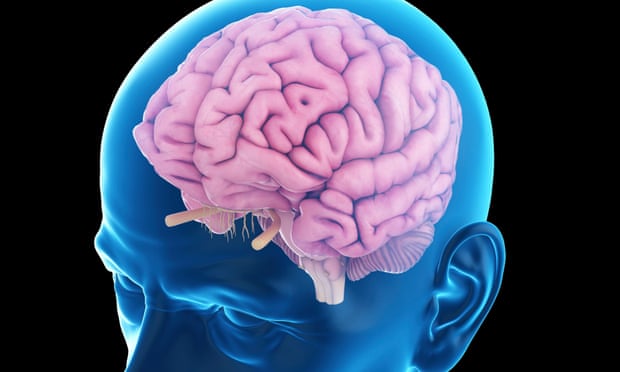A plant-based diet is thought to have played a significant role in human evolution.
The consumption of whole plant-based foods has repeatedly been associated in the scientific literature with a decreased risk of age related diseases.
These include the reduction of cardiovascular disease, many cancers, and metabolic diseases such as obesity and type 2 diabetes.
A plant based diet refers to an eating pattern which is primarily focused on the consumption of plants; including the consumption of fruits, vegetables, nuts, seeds, oils and legumes.
Whilst we know this eating pattern has a positive effect on your physical health and the slowing of age-related diseases; can this eating pattern also slow the aging process for you brain?
How Can you Protect you Brain?
Dementia is a progressive disease of the brain which is characterised by impairment in at least two brain functions.
Reduced brain function is associated with the aging process; but lifestyle factors can significantly reduce the rate of brain function impairment.
Two of the most dreaded consequences of dementia associated with aging are memory loss and the loss of movement function which impairs muscular movement for daily activities.
Dementia robs older adults of their independence, control, and identity.

Can you reduce the risk of Dementia?
Consuming a plant-based diet with fruits and vegetables can help reduce the risk of other chronic diseases, might they also work for reducing age related brain diseases?
There has been a proliferation of recent interest in plant polyphenols as agents in the treatment of dementia.
Plant polyphenols are secondary metabolites that play a protective role within plants, generally in the defence of the plant against ultraviolet radiation and aggressive pathogens.
In the last decade there has been much interest in the human health benefits of dietary plant polyphenols as antioxidants.
Blueberries, Nutrition and Dementia
There are 4,000 different kinds of polyphenols found ubiquitously in foods of plant origin.
Berries are packed with them, possessing powerful antioxidant, anti-inflammatory properties.
There is a subset of polyphenols called anthocyanidins which give red, purple, and blue plants their colour.
These natural blue-purple pigments are uniquely and specifically capable of crossing the blood–brain barrier AND localizing inside the brain regions involved in learning and memory.
And it is within the brain where we need these powerful antioxidants.
The brain takes up less than like 2% of your body weight but can burn up to 50% of your body’s fuel.
As the brain consumes so much fuel, it creates a potential firestorm of free radicals. Free radicals can damage cells and are linked to accelerating the aging process (in your brain and within your body)
So maybe these brain-seeking phytonutrients in berries could fight oxidation, inflammation, and increase blood flow?
Maybe a nutritional intervention with blueberries may be beneficial in forestalling or even reversing the neurological changes associated with aging.
So, did researchers give blueberries to people and see what happened?
Not at first – they gave blueberries to rats and measured the impact on brain function.
It would be a decade before the first human trial. However… it worked!
This first research study Blueberry Supplementation Improves Memory in Older Adults demonstrated that the consistent dietary supplementation with blueberries can forestall or mitigate brain degeneration with age.
Do other Berries reduce Dementia?
What other blue/purple foods can we try?
Concord grape juice had a similar benefit, improving verbal learning, suggesting that supplementation with purple grape juice may enhance cognitive function in older adults with early memory decline.
This effect was confirmed in a follow-up study, showing for the first time an increase in neural activation in parts of the brain associated with memory using functional MRI scans.
But this brain scan study was tiny, just 4 people in each group.
This was the same problem in the blueberry study –it just had 9 people in it.
Why haven’t large population-based studies been done?
Because we have not had good databases on where these phytonutrients are found.
We know how much vitamin C is in a blueberry, but not how much anthocyanidin, …until now!
The Harvard Nurse’s Health Study followed the cognitive function of more than 16,000 women for 29 years, and found that higher, long-term consumption of berries was associated with significantly slower rates of cognitive decline in this cohort of older women.
These positive results were observed even after careful consideration of confounding by socioeconomic status, meaning even after taking into account the fact that rich people eat more berries.
This was the first population-based evidence that greater intakes of blueberries and strawberries were highly associated with slower rates of cognitive decline, and not just by a little bit.
The magnitude of associations were equivalent to the cognitive differences that one might observe in women up to 2 and a half years apart in age.
In other words, women with a higher intake of berries appeared to have delayed cognitive aging by as much as 2 1/2 years.
Why not just take some kind of anthocyanidin supplement?
Because there hasn’t been a single study that found any kind of cognitive benefit just giving these single phytonutrients. In fact, the opposite.
Whole blueberries appear to be more effective than individual components, showing that the whole is greater than the sum of its parts.
These findings potentially have substantial public health implications, as increasing berry intake represents a fairly simple dietary modification to test in older adults for maintaining brain function.
Source; You Tube How to Slow Brain Aging by Two Years
About the Author: Brendan Rigby is an Accredited Exercise Physiologist and founder of Inspire Fitness for Wellbeing with 20+ years of experience.
